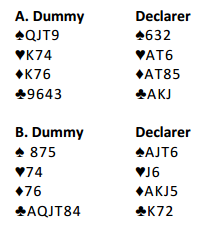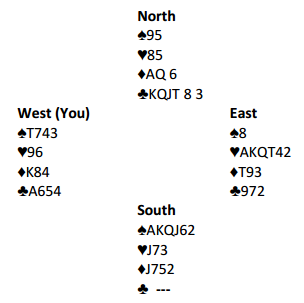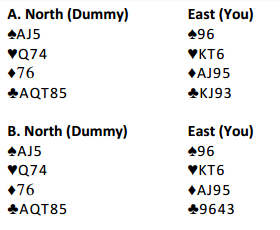 Let’s look at leads and the important role they play when defending against both no trump and suit contracts. Consider if you were the declarer in 3NT on the two hands below.
Let’s look at leads and the important role they play when defending against both no trump and suit contracts. Consider if you were the declarer in 3NT on the two hands below.
 On Hand A, you receive the lead of the
On Hand A, you receive the lead of the 
 You lead the
You lead the When you are defending a suit contract, do not attempt to cash tricks in suits that cannot disappear!
This is often true in no trump contracts as well, but it is especially important against suits. Of all of the easily correctable errors I see, this is one of those things that lesser experienced players seem to get wrong over and over again. Defending accurately is difficult. To be a good defender, you have to know what declarer’s plan is going to be before he even starts it. On top of that, you need to recognize whether or not a particular hand needs to be defended aggressively or passively. How can you know? Most of the time, the answer will be staring you in the face. Look at the dummy. It usually will provide the necessary clues. Let’s look at a couple of simple examples. Suppose the auction goes 2 You win the
You win the 


























